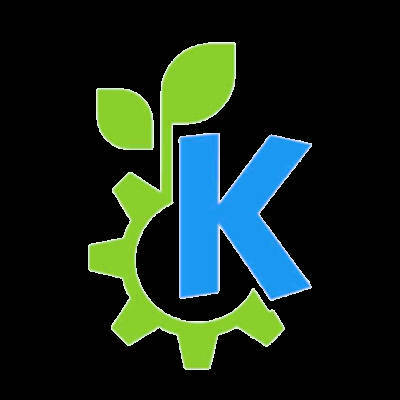KDE Eco
The KDE Eco project advances sustainable software design in Free & Open Source Software.
Boosts do not necessarily mean endorsement.
For toots posted before 1 November 2022, see https://mastodon.social/@BE4FOSS.
- 7 Posts
- 9 Comments

 1·4 months ago
1·4 months ago@Allon @simple Exactly, it enables automation of user behavior so one can measure energy consumption in a replicable way.
This measurement method is described in detail here (see Fig. 4 for lab setup): https://www.sciencedirect.com/science/article/pii/S0167739X17314188
I agree! You may want to check out projects like ComputerTruhe (@computertruhe) and Free Geek.
They have been active in upcycling hardware with Linux for some time now.
If you know of others, let us know in the replies.
@bitfucker Over the next 2 years we plan to organize events like this with volunteers around the world. If you would like to get involved, be in touch!
As part of the “Opt Green” project we are also creating info materials about software-driven e-waste (https://invent.kde.org/teams/eco/opt-green/-/blob/master/materials/leaflets/kde-eco-umweltfestival-flyer-EN_final.jpg) and providing Linux installation help and generally documenting what we are doing so others can learn from what is working (and what is not) 🙂
But you don’t have to wait for us: check out your local Linux User Group!
In the project we are embracing and onboarding participants to the many choices one has with Linux, meaning we can tailor the software to the needs of the users themselves!
For newer devices we suggest Fedora (KDE / GNOME) or Linux Mint. For 10+ years old devices Linux Mint XFCE or Lubuntu.
We will try to understand what they want / expect (classic feel? consistent interfaces? newest features? etc.). We will have some demo computers to try out.
Other ideas are welcome! 🙂
Have an old Android smartphone*? Come on by! We may be able to upcycle it with an Android/Linux alternative or even a full GNU/Linux OS.
Friday 28 June 2024, 18:00-21:00 CEST at Moos, Moosdorfstr. 7-9 (S Treptower Park).
*Apple’s policies mean iPhones will not work.
#PlasmaMobile #Phosh #postmarketOS #UbuntuTouch #eOS #CalyxOS #LineageOS #Android #iPhone #Apple

 1·5 months ago
1·5 months agoOld hardware with new software at “Long Night of the Sciences” (#LNDW24) with German Environment Agency (#UBA).
The oldest: 21 years old with #HaikuOS and up-to-date version of #GCompris for children to play.
The newest: 11 years old with #Fedora #KDE Spin.
In 1st image you can see the #KDEEco handbook (2023) in #Okular:
In the 2nd the e-book "20 Years of KDE (2016) in #Arianna:
@phoenix Regarding the assumed operating life of devices:
“For the purposes of our assessment, years of use, which are based on first owners, are modeled to be four years for macOS and tvOS devices and three years for iOS and watchOS devices. Most Apple products last longer and are passed along, resold, or returned to Apple by the first owner for others to use.”
Hope that helps!
@phoenix It looks to be statistical inference based on sampled and modelled data. On p. 57 of the report: “To model customer use, we measure the power consumed by a product while it is running in a simulated scenario. Daily usage patterns are specific to each product and are a mixture of actual and modeled customer use data.”
The number of devices for the statistical inferences is: “In fiscal year 2018, we sold 217,722,000 iPhone devices, 43,535,000 iPad units, and 18,209,000 Mac products.”

@hecklerundkochli Thank you! There are not many materials yet as the Opt Green project is still in the beginning stages.
All materials will be collected at the project repository: https://invent.kde.org/teams/eco/opt-green/.
And eventually they will be included in a how-to e-book for GNU/Linux installations from an environmental perspective.
We will continue to post updates in the project, so keep an eye here for news 🙂